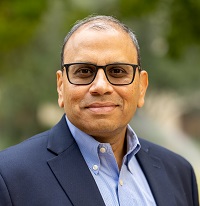Sustainability and a holistic viewpoint – Summary


Our previous episode in our sustainability series focused on how companies explore sustainability and the obstacles standing in their way to pursuing it. They’re using a digitalization strategy to achieve their objectives.
In this podcast episode, we continue the sustainability theme with a focus on industrial machinery. We are privileged to speak again to our resident expert Erin Devola, Head of Sustainability at Siemens Digital Industries Software, and we also welcome Rahul Garg, VP of Industrial Machinery and SMB Business Program at Siemens Digital Industries Software.
Erin’s background is in mechanical engineering, with over 20 years in the industry with experience in various roles in quality, reliability, and test engineering, and with Siemens, 12+ years working in multiple areas of our portfolio, and now her role in sustainability. Rahul has a background as an electrical computer engineer and has been involved with the design and development of software for the last 20-30 years, leading three startups.

Trends driving sustainability
Key trends drive the need for a sustainable business strategy in the industrial machinery industry. The entire topic of sustainability is undoubtedly exciting as it prompts new thinking that has yet to be part of the core analysis and design.
The four areas that are driving this change are the following:
- The regulatory and government bodies drive the commitments, reporting, and compliance.
- The capital flow of money being invested in driving smarter, sustainable factories.
- The social aspect of resource scarcity.
- Customers are demanding that equipment providers make their equipment more sustainable.
These drivers are changing how we look at sustainability, a pressing issue to moving forward in your business strategy.
When you look at these trends through the lens of industrial machinery, you can see how electrification and the need for electrification are driving the need for efficiency because so many of those processes require much energy density that is only available in a fossil fuel – not the same way that it’s available in electricity. Therefore, there is a need to convert the material to be evaluated and optimized at every corner.
Digitalization is vital in making sustainability happen
The topic of emissions in energy consumption from fossil fuels comes down to the cost of energy, which is on the rise, thus, becoming a significant driver for trying to optimize that cost point.
Sustainability requires planning and many tools to make it happen. Digitalization is a pivotal lever to do that very thing by providing the opportunity to view the entire product lifecycle, taking data from many different phases and being able to visualize it to be able to try various things as you run through simulation tools within the context of digitalization, providing the ability to exchange data.
Digitalization is primarily viewed as helping a company become a digital enterprise to be more adaptable, agile, and flexible and improve the ability to deliver a product at the right time, quality and cost.
However, leveraging digitalization for energy efficiency, decarbonization circularity, and resource efficiency brings it all together comprehensively for many of our customers. It is an evolution. Digitalization provides you with the tools to make it palatable and executable.
As it becomes more complex with more outcomes, it also provides digital tools and enablement to make it manageable moving forward. Also, it allows you to see along the whole value chain where all the entities in that chain can work together to move it forward to find those pain points more universally and holistically to work together to attack them.
This is the beauty of having a safe, secure exchange of data and being able to visualize that data across your entity and the entire lifecycle of a product, the production line, or the production facility. This is a significant implication for industry and how those need both traditional and sustainable outcomes.
When looking for the best way to optimize your design process using digitalization tools, you’re trying to look at suppliers for both the cost and the carbon footprint of the part. Also, consider the carbon footprint the supplier’s partner might have in delivering the part to your location.
Therefore, there’s the ability to do all those things in the realization phase when planning the design of a product and the machinery that will manufacture it. You can decide about energy-efficient equipment and product longevity early in the process.
Leveraging digitalization for sustainability
When designing, you no longer create a machine for the highest possible throughput or quality but must also design for energy efficiency and circularity. You want to make it easy to remanufacture and refurbish a machine, thus extending its life.
Also, sustainability in the manufacturing of the machines is essential. It is necessary to evaluate how your suppliers will provide you with parts for your machine and how sustainable their efforts are in making those parts, measuring the sustainability impact from operating machines at the end of the day when running a machine. This is when the highest energy consumption impact occurs.
So, this is when the carbon footprint impacts the life of a machine, and it could be anywhere from six months to 60 years.
Learn more in the podcast or transcript.
Siemens Digital Industries Software helps organizations of all sizes digitally transform using software, hardware and services from the Siemens Xcelerator business platform. Siemens’ software and the comprehensive digital twin enable companies to optimize their design, engineering and manufacturing processes to turn today’s ideas into the sustainable products of the future. From chips to entire systems, from product to process, across all industries. Siemens Digital Industries Software – Accelerating transformation.


